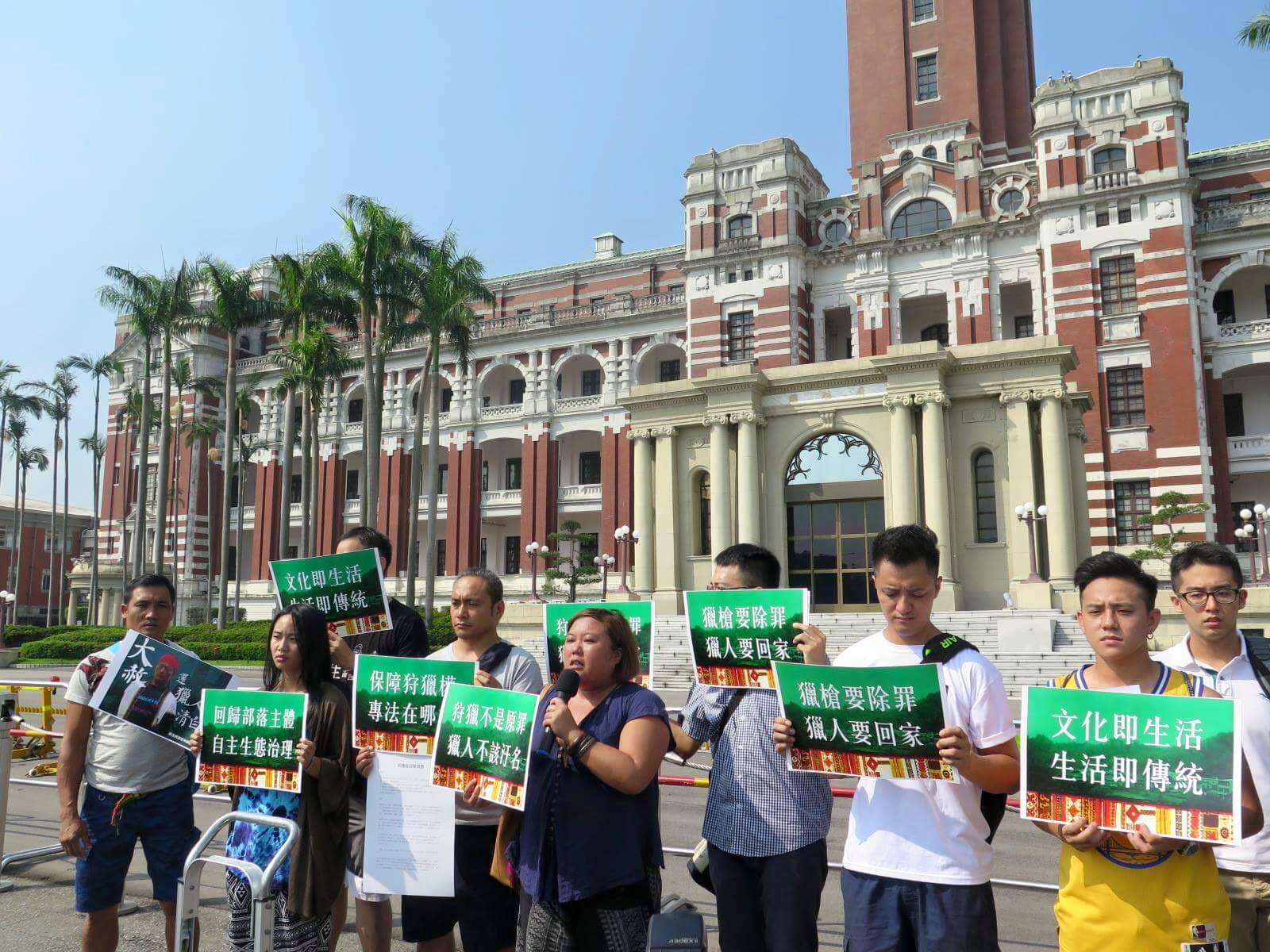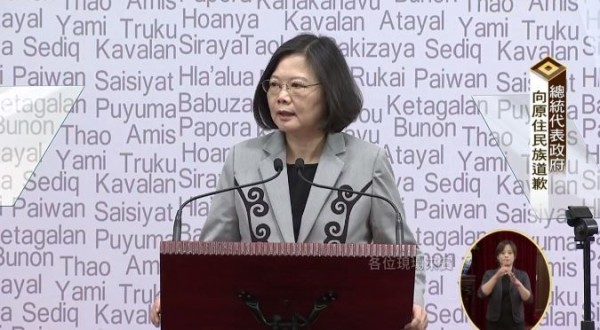by Brian Hioe
語言:
English
Photo Credit: Indigenous Youth Front
IT SEEMS LIKELY that the Tama Talum case can now be added to the growing list of issues that Tsai Ing-Wen promised to take action on during campaigning but has failed to substantially push for while in office. Tama Talum, the 57 year old indigenous hunter who was arrested in 2013 and sentenced to jail in 2015 for hunting with a shotgun to provide meat for his elderly mother, has recently been hospitalized. Talum had been hunting because his mother, who is in her nineties and in poor health, is used to eating meat from the mountains and store-bought meat makes her sick. But now it would be that Talum himself has taken ill.
Having contracted a case of pneumonia, Talum is currently in the Intensive Care Unit and was on intubation. Talum seems to have been unconscious from October 20th until returning to consciousness on the morning of October 31st. It is thought that a major reason for his hospitalization is because of the pressure from the legal case against him, seeing as the case is ongoing and charges against him have not been repealed. When sentenced in 2015, Talum did not deny the facts of his actions, but denied that his actions had been illegal. Though sentenced to three and a half years in prison as well as a fine of 70,000 NTD, an emergency stay led to Talum not being jailed despite his term originally being slated to start in October. It is unknown who is currently caring for Talum’s mother.
In response to Talum’s, hospitalization, an online campaign calling on President Tsai Ing-Wen to pardon Talum was started on October 24th by the Indigenous Youth Front activist organization. On October 26th, a petition with over 1,000 signatures collected by the Indigenous Youth Front was presented to officials outside the Presidential Residence.
 Demonstration by the Indigenous Youth Front outside the Presidential Residence. Photo credit: Indigenous Youth Front
Demonstration by the Indigenous Youth Front outside the Presidential Residence. Photo credit: Indigenous Youth Front
At the time of Talum’s sentencing in 2015, legal reform groups cited the unduly heavy sentence against Talum as fitting in with the broader pattern of unjust applications of the Indigenous Basic Law in Taiwan, and the violation of international human rights conventions when applied to indigenous in Taiwan. Chen Cai-Yi of the Legal Aid Foundation stated, “the ruling of this case was even more serious than that of a murder case.” Indigenous rights groups also cited that the case violated the traditional culture of indigenous, seeing as hunting is part of traditional Bunun culture, and enforcement of the law sometimes comes down against indigenous for seeking to practice their traditional culture.
The Talum case would not be the only case of indigenous being arrested for hunting in recent years, but the poignant human element of Talum hunting for his mother led to the cause becoming a cause celebre. Seeing as Talum’s sentencing took place shortly before 2016 presidential elections, Tsai Ing-Wen would even reference the case in the third presidential debate in January, as gesturing towards her plans to apologize on behalf of the government to indigenous once elected.
But despite her campaign vows, since the Tsai administration took office it has had a checkered record on indigenous rights. While Tsai’s inauguration ceremonies attempted to emphasize Taiwan’s indigenous roots to distance Taiwan from the China-centric historical narrative of the KMT, this featured stereotypical depictions of indigenous as a merry singing and dancing peoples, and referred to indigenous as having “primitive and uncultivated customs” which needed to be civilized by western missionaries. Likewise, Tsai’s apology to indigenous was criticized as being shallow and superficial by indigenous groups and took place at the same time as heavy-handed suppression of indigenous demonstrators by riot police.
 Tsai during her apology to indigenous. Photo credit: Liberty Times
Tsai during her apology to indigenous. Photo credit: Liberty Times
With the Tsai administration in some cases seeking to subtly localize institutions of government from the China-centric institutions of the ROC, it may be that Tsai’s gestures in the direction of protections for indigenous is aimed more at asserting a fundamental difference between Taiwan and China than protecting the rights of indigenous. This difference would be founded on using indigenous to point to Taiwan’s broader history of colonialism, seeing as peoples who might be categorized as indigenous in other parts of the world are instead relegated to the category of “ethnic minorities” in China.
Along such lines, the presence of indigenous in Taiwan is asserted to be a means by which Taiwan and China are different. Indeed, as part of benshengren Taiwanese ethno-nationalism, it is sometimes claimed that Taiwanese benshengren differ from Chinese due to their partial indigenous descent, as is often the case. Despite being one quarter indigenous herself, one can lay this accusation at Tsai’s doorsteps, seeing as even as high profile an incident as the Tama Talum case has not seen action by the Tsai administration,
So it will take likely take more contestation by indigenous groups and other activists to get the Tsai administration to live up to its campaign promises regarding the rights of Taiwanese indigenous, much less to enact structural reform aimed at bettering the situation of indigenous. Even if applying pressure leads the Tsai administration to take further action on the Talum case, activists need to be careful that the Tsai administration will not merely take action on one high profile case to make it appear as if it is taking broader initiatives to aid indigenous. And so the plight of indigenous in Taiwan continues.

